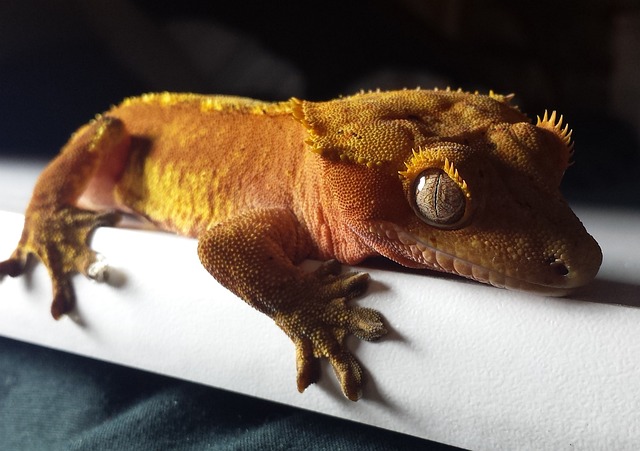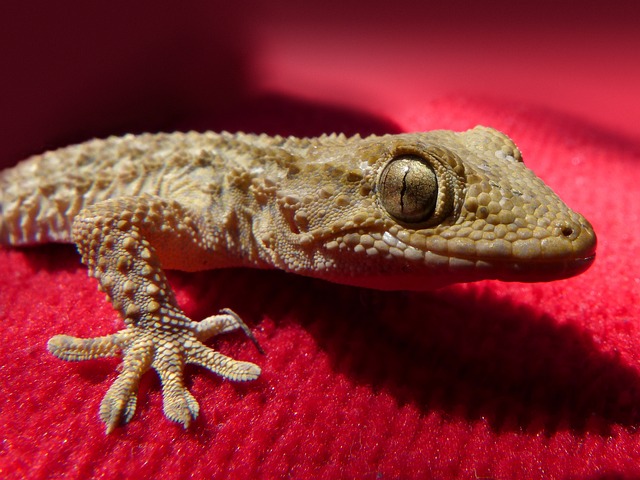Why Active Gecko Pets Are the Ultimate Low-Maintenance Companions

Introduction
When it comes to choosing a pet, many people are drawn to options that offer both companionship and minimal upkeep. Active geckos, with their vibrant personalities and low maintenance needs, are emerging as the ultimate choice for busy individuals and families alike. This article explores why active geckos make fantastic pets for those seeking a low-maintenance companion.

1. Understanding Gecko Species
1.1 Popular Gecko Varieties
Geckos come in various species, each with unique characteristics. Some popular varieties include:
Leopard Geckos: Known for their friendly nature and distinctive spotted pattern.
Crested Geckos: Recognizable by their crests and gentle demeanor.
Tokay Geckos: Famous for their vibrant colors and vocalizations.
1.2 Choosing the Right Gecko for You
Selecting the right gecko involves considering their temperament, habitat needs, and care requirements. Research each species to find one that fits your lifestyle.
2. Low-Maintenance Appeal
2.1 Minimal Space Requirements
Geckos require relatively small enclosures compared to traditional pets like dogs or cats. A well-designed terrarium can house your gecko comfortably without taking up much space.
2.2 Easy Feeding Routines
Feeding geckos is straightforward. Most species thrive on a diet of commercially available insect food, supplemented with fruits or vegetables if required. This simple feeding regimen makes them ideal for busy pet owners.
2.3 Low Grooming Needs
Unlike furry pets, geckos don’t need regular grooming. Their self-cleaning habits mean you won’t need to worry about shedding fur or frequent baths.
3. Minimal Health Concerns
3.1 Disease Resistance
Geckos are generally hardy animals with fewer health issues compared to other pets. Proper care, including a clean habitat and balanced diet, can prevent most common ailments.
3.2 Long Lifespan
Many gecko species have long lifespans, with some living up to 20 years in captivity. This longevity means you’ll enjoy their company for many years with minimal health-related concerns.
4. Fascinating Behavior
4.1 Active and Engaging
Active geckos are known for their lively behavior. Watching them hunt for food, climb their enclosure, and interact with their environment can be both entertaining and educational.
4.2 Unique Vocalizations
Some geckos, like the Tokay, produce distinctive sounds. These vocalizations can add a unique charm to your home and provide a new sensory experience.
5. Easy Habitat Setup
5.1 Simple Terrarium Requirements
Setting up a gecko terrarium is relatively easy. Essential components include a heat source, substrate, and hiding spots. Many of these items are readily available at pet stores and can be arranged with minimal effort.
5.2 Low Maintenance Enclosure
Maintaining a gecko’s habitat involves regular spot cleaning and occasional full cleanings. The setup’s simplicity ensures that the maintenance tasks are quick and manageable.
6. Ideal for Busy Lifestyles
6.1 Flexibility in Interaction
Geckos are independent creatures that do not require constant attention. They are content with occasional interaction, making them suitable for people with busy schedules.
6.2 Travel-Friendly
For those who travel frequently, geckos are an excellent choice. Their low-maintenance nature means they can be easily cared for by a friend or pet-sitter during your absences.

7. Educational Opportunities
7.1 Learning About Reptiles
Keeping a gecko provides an opportunity to learn about reptile behavior, biology, and ecology. This knowledge can be particularly beneficial for children and educational for the entire family.
7.2 Observation Skills
Geckos’ interesting behaviors and interactions with their environment encourage observation skills. This can enhance your understanding of animal behavior and natural science.
8. Cost-Effective Pet Ownership
8.1 Affordable Initial Setup
Compared to other pets, geckos are relatively inexpensive to acquire and set up. Basic terrarium equipment and initial food supplies are cost-effective, making geckos an accessible option for many.
8.2 Low Ongoing Costs
Geckos have low ongoing costs, with minimal expenditure on food and habitat maintenance. Their longevity and low medical expenses contribute to their cost-effectiveness as pets.
Conclusion
Active geckos are indeed the ultimate low-maintenance companions for anyone seeking a pet that is both engaging and easy to care for. Their minimal space requirements, simple feeding routines, and fascinating behavior make them an ideal choice for busy individuals and families. By understanding their needs and characteristics, you can enjoy the unique companionship of a gecko while benefiting from their low-maintenance nature.
FAQs
How often do I need to feed my gecko?
Most geckos require feeding 2-3 times a week. The exact frequency depends on the species and their age.
Do geckos need a special diet?
Geckos generally eat a diet of commercially available insect food, such as crickets or mealworms, with occasional fruit or vegetable supplements.
How big should the terrarium be for a gecko?
The size of the terrarium depends on the gecko species. A 10-20 gallon tank is typically sufficient for most small gecko species.
Can geckos live with other geckos?
Some gecko species are social and can live together, while others are solitary. Research your specific gecko’s social needs before introducing multiple geckos.
What are common health issues in geckos?
Common health issues include metabolic bone disease, skin infections, and parasitic infestations.Routine health examinations and attentive care can help avoid these issues


